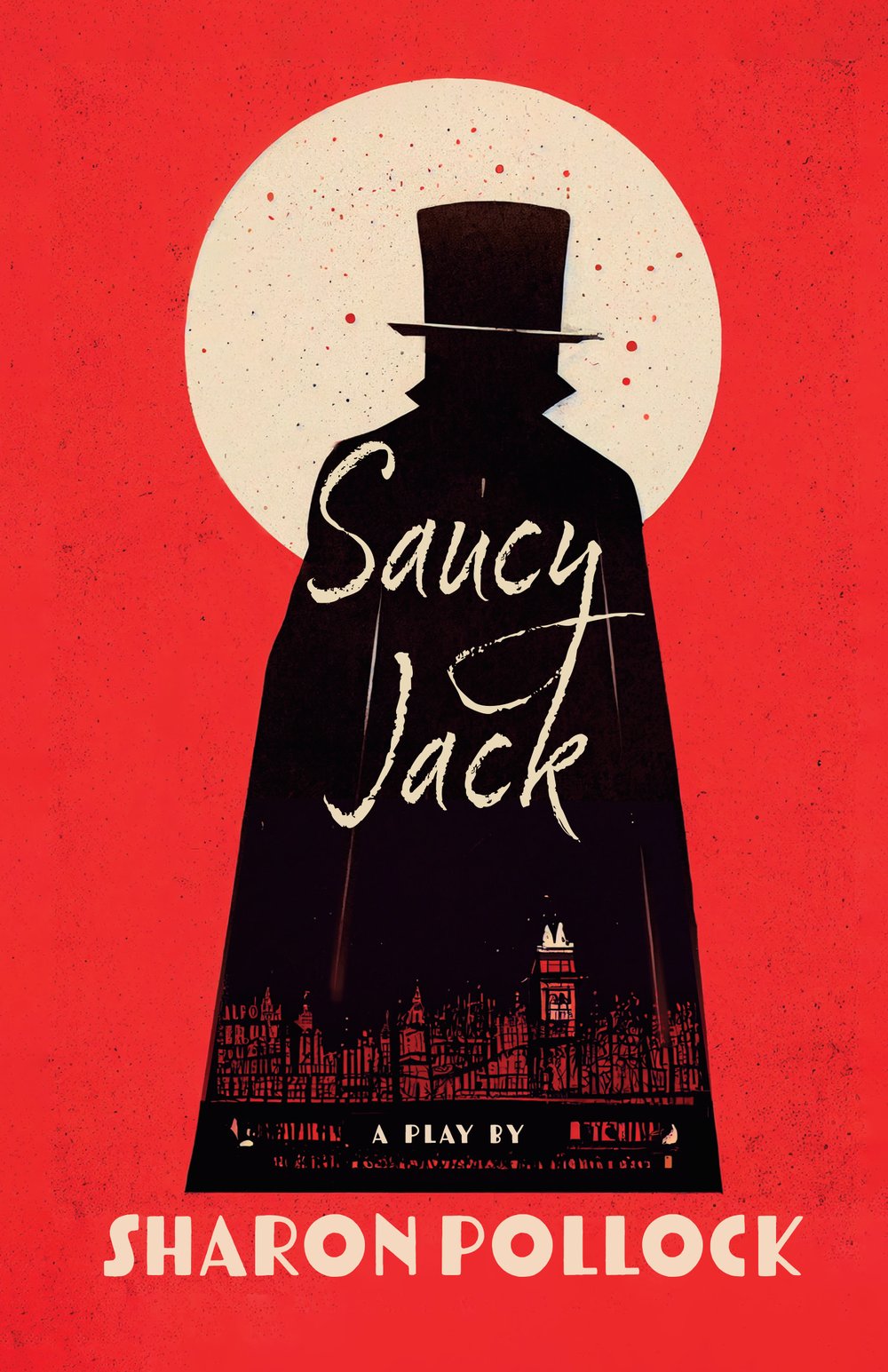Saucy Jack
One of the most intriguing theories about the identity of the infamous London murderer, Jack the Ripper, is that he hid behind the skirts of respectability, social position, and perhaps, even royalty…
In Saucy Jack, the author of Blood Relations and Doc, Sharon Pollock, implicates the most upper echelons of British society in the brutal murders of London’s prostitutes. In a stately Victorian drawing room, two old friends, James Kenneth Stephen, a scholar, and his former pupil, Prince Albert Victor, Queen Victoria’s nephew and heir to the throne, dance around the truth of the identity of London’s most notorious killer, and while a tale of psychological intrigue is played out, an unravelling of tested friendship, betrayal, duplicity, and motive is revealed.
With the single female character of Kate, an actress hired by James to re-enact the death throes of the prostitutes, Pollock creates an ominous presence, both disturbing and haunting.
Saucy Jack undoes the mythology surrounding the killer, weakens his place in the ranks of history’s powerful, and instead, gives a voice and a face to his anonymous victims.
Sharon Pollock was born Mary Sharon Chalmers in Fredericton, New Brunswick, in 1936, where she first became involved in the theatre in university. Later, with the Praire Players, she toured British Columbia and Alberta in 1966, and was voted Best Actress at the Dominion Drama Festival. She settled in Calgary the next year, raised a family, and while pregnant with her sixth child she began writing her first play. In 1973, Walsh (1983) premiered at Theatre Calgary. A subsequent production in 1974 at the Stratford Festival brought Pollock’s writing to wide public attention. She has written many plays, including Blood Relations and Other Plays, which won the Governor General’s Award in 1981, and Doc (1985), which won the Governor General’s Award in 1986.


